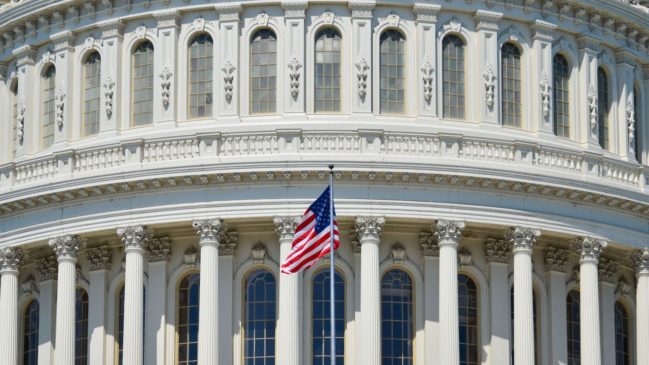U.S. Senators Jim Risch and Bob Menendez have reintroduced the “Accountability for Cryptocurrency in El Salvador Act,” known as the “ACES Act,” for discussion in the Senate. The piece of legislation seeks to examine the level of adoption of bitcoin as a legal tender in El Salvador and how this might affect the financial stability of the country.
‘Accountability for Cryptocurrency in El Salvador (ACES) Act’ Reintroduced in U.S. Senate
U.S. Senators Jim Risch and Bob Menendez have reintroduced the “Accountability for Cryptocurrency in El Salvador Act,” also known as the “ACES Act,” to be discussed in the U.S. Senate. The piece of legislation, that was previously presented to Congress on March 23, 2022, seeks to examine the process applied to make bitcoin legal tender in El Salvador, as well as its effect on the economy of the country.
When reintroducing the ACES Act, U.S. Senator Jim Risch reinforced the perceived need to assess the possible effects of using crypto as legal tender. He stated:
We must seek greater clarity on how the adoption of bitcoin as legal tender may impact El Salvador’s financial and economic stability, as well as El Salvador’s capacity to effectively combat money laundering and illicit finances.
Elements of the Act
If enacted, the act would compel the Secretary of State and the Secretary of the Treasury to produce a report about the adoption of bitcoin and legal tender in El Salvador. This would include an assessment of the legislation that allowed it, the impact it is having on the personal economy of Salvadorans, and also the gaps that this implementation could create regarding compliance with the guidelines issued by the Financial Action Task Force (FATF) on money laundering and terrorism financing activities.
The report should also include how the introduction of bitcoin could affect the relations of El Salvador with multilateral finance organizations, like the World Bank and the International Monetary Fund, as well as its international financial stability.
Finally, it must also examine how bitcoin adoption might influence the remittance flow between El Salvador and the U.S., and how it might undermine the usage of dollars in the country.
Salvadoran President Nayib Bukele had expressed his disbelief on the text of the ACES Act before, stating:
Never in my wildest dreams would I have thought that the U.S. Government would be afraid of what we are doing here.
What do you think about the reintroduction of the “Accountability for Cryptocurrency in El Salvador (ACES) Act” in the U.S. Congress? Tell us in the comments section below.
Image Credits: Shutterstock, Pixabay, Wiki Commons
Disclaimer: This article is for informational purposes only. It is not a direct offer or solicitation of an offer to buy or sell, or a recommendation or endorsement of any products, services, or companies. Bitcoin.com does not provide investment, tax, legal, or accounting advice. Neither the company nor the author is responsible, directly or indirectly, for any damage or loss caused or alleged to be caused by or in connection with the use of or reliance on any content, goods or services mentioned in this article.



